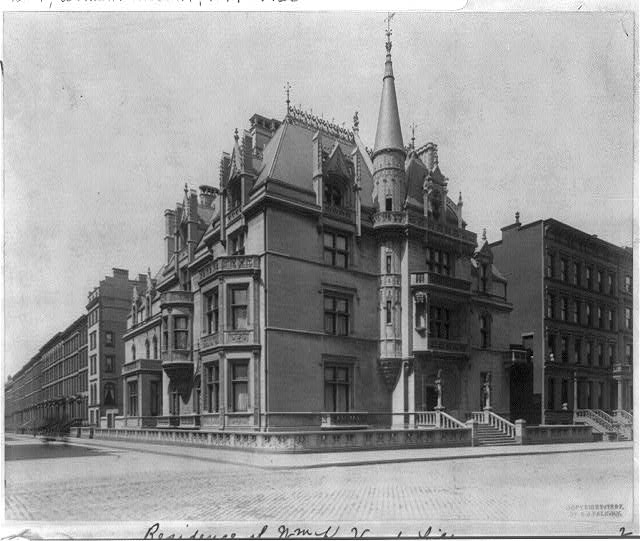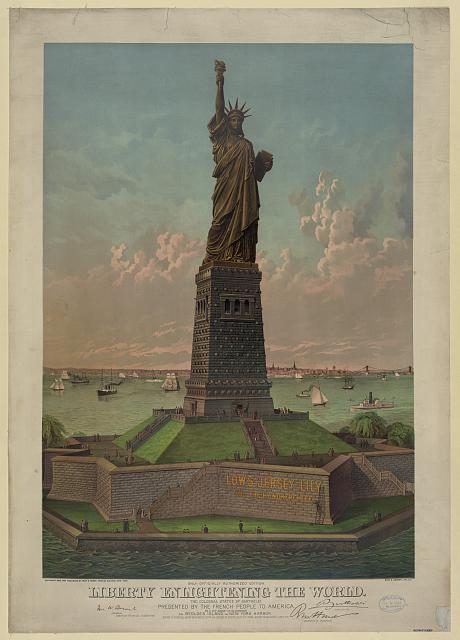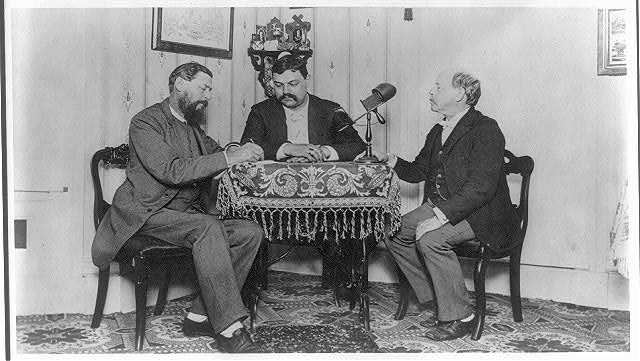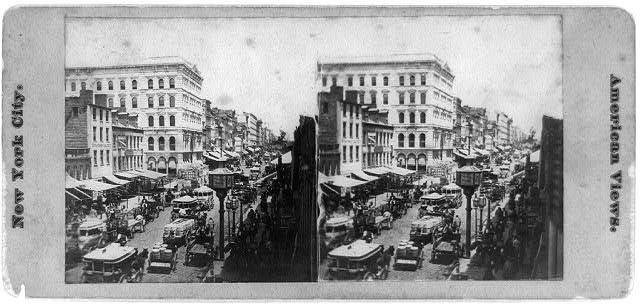Last Chance to Catch NYC's Holiday Notalgia Train
We met the voices of the NYC subway on our nostalgia ride this weekend!


In the book New York City in the Gilded Age, Esther Crain, founder of the website Ephemeral New York, supported by the New York Historical Society, explores how New Yorkers’ lifestyle and the architecture of the time influenced each other. From the late 1860s up until the beginning of the 1900s, Crain delves into the expansion of the city, the construction of monuments, and common street scenes. Her details range from the popularity of brownstone houses in the 1860s and 1870s to the creation of the Broadway theater district that New Yorkers are familiar with.

William K. Vanderbilt Mansion. Image via The Library of Congress
When asked what distinguished the Gilded Age from other periods, Crain says “splendor and corruption. After the Civil War, money poured into the city. There was an incredible energy, sense of greatness and destiny…Things were literally going up–skyscrapers, elevated train tracks, new neighborhoods, and parks. Accompanying all of that was an equal amount of greed and lust. Crime, vice, political scandals–the Gilded Age produced an abundance of depravity.”
Crain includes the history and lesser-known facts about, arguably, the most famous monument of the Gilded Age: the Statue of Liberty. She explains that although it was a gift from the French, Americans were responsible for constructing the pedestal. Since New York state didn’t have enough funding, it relied on Joseph Pulizer’s campaign which encouraged donations by promising to print the name of every American who donated in his newspaper, New York World. By 1885, the state had $100,000 to build the pedestal.

Statue of Liberty fundraising poster, 1884. Image via The Library of Congress
Crain couples the New York City history with an array of vintage photographs. To evoke how New Yorkers experienced the Gilded Age, Crain includes 50 stereograph images of New York City street scenes during the last half of the 19th century. A stereoscope is a device that can make images on stereoscope cards appear three dimensional. The stereograph is the card with a double image that when viewed through a stereoscope appears three dimensional. In the 1800s, stereoscopes were a household device used for news and entertainment.
The book’s launch party will be held Wednesday, June 18th from 6 p.m. to 8 p.m. at the Museum at Eldridge Street. Crain will do a reading and book signing of New York City in the Gilded Age. A stereoscope will be available for viewing rarely-seen stereographs documenting New York City between the 1860s and the start of the 1900s.

Men using stereoscope, 1889. Image via The Library of Congress

Stereograph of Broadway Theater District, 1870. Image via The Library of Congress
New York’s Gilded Age may be a forgotten era to New Yorkers today but it holds the roots of New York’s modern city. By rediscovering New York through the lens of a vintage stereoscope, Crain reminds New Yorkers of their city’s eclectic past. A compilation of a post Civil War society, mass immigration, and a focus on leisure time and wealth, all occuring in the short span of fifty years, was the basis of the city’s current construction.
You can purchase New York City in the Gilded Age here.
For more Untapped on the Gilded Age, check out the “New York Palace,” an extravagant hotel highrise and Frank Woolworth’s office in the Wollworth building.
Subscribe to our newsletter